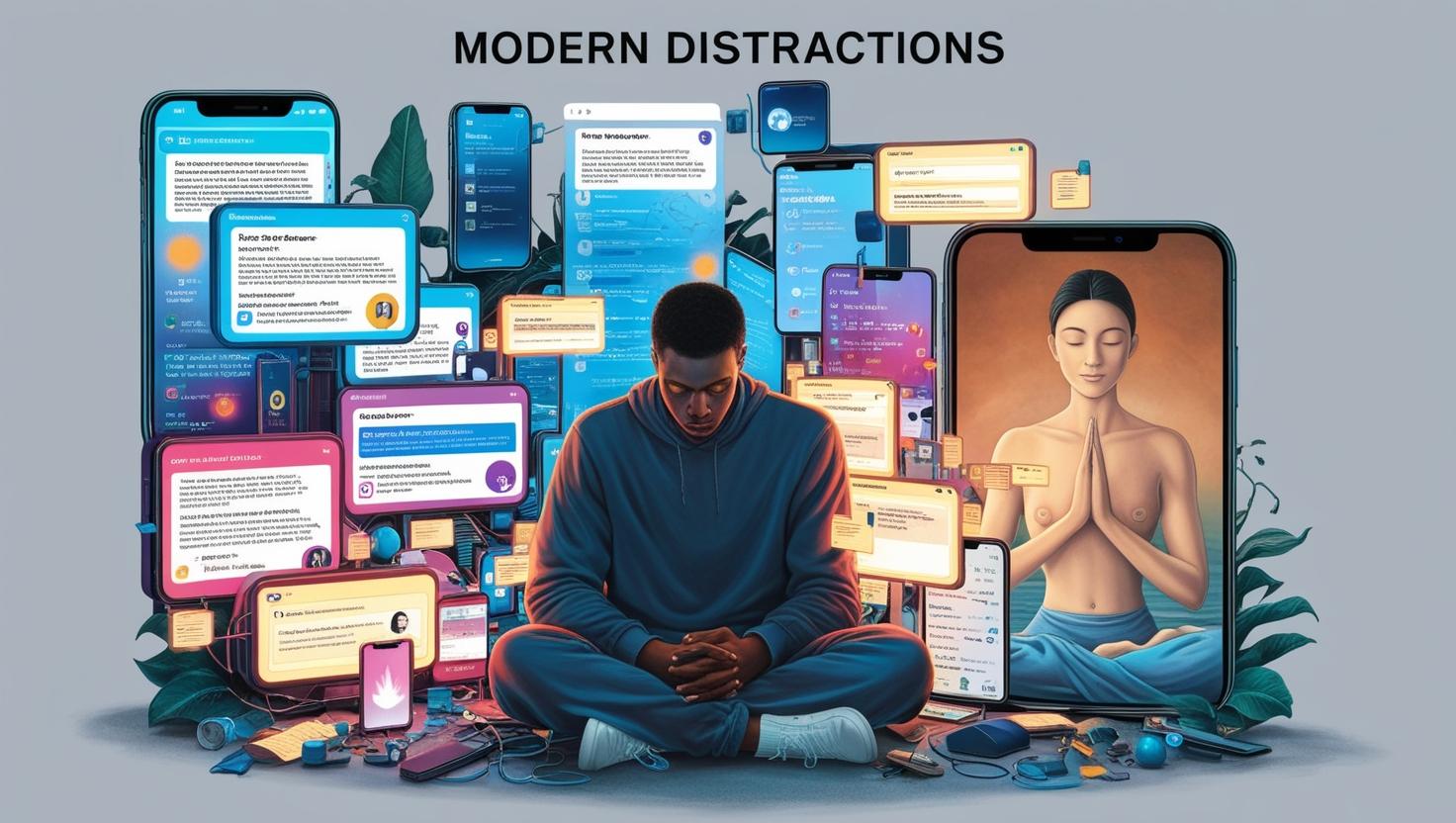In today’s hyper-connected world, staying focused feels like an uphill battle. Between smartphones buzzing, social media scrolling, and the constant pressure to multitask, our brains rarely get a moment to breathe. The result? A global attention crisis—and it’s affecting everything from productivity to creativity.
But while the problem is widespread, the solution might be much simpler than you think.
The Age of Distraction: What’s Really Going On?
Let’s start with a little truth bomb: our brains were not designed for the modern world.
For thousands of years, human attention evolved in a very different environment—one filled with natural rhythms, slow-paced communication, and limited stimuli. Fast forward to today, and we’re bombarded with thousands of pieces of information every single day.
Notifications. Emails. Ads. Noise. News.
Our brains are constantly toggling between tasks, often without us even realizing it. This leads to what’s called attention residue—a psychological phenomenon where a part of your mind stays stuck on the previous task, even while you’ve moved on to a new one.
The Cost of Constant Distraction
While checking your phone every 5 minutes may feel harmless, the consequences are deeper than we often acknowledge:
- Reduced productivity: Studies show that it takes an average of 23 minutes to refocus after an interruption.
- Lower creativity: True creativity comes from deep thought and mental quiet—a state rarely achieved when you’re constantly stimulated.
- Increased stress and anxiety: The constant feeling of being “on” can fry your nervous system over time.
- Decreased memory and cognitive performance: Chronic multitasking impairs your brain’s ability to retain information.
The bottom line? Distraction doesn’t just waste time—it erodes your potential.
Is It Possible to Reclaim Your Focus?
Here’s the good news: you can absolutely retrain your brain. But it won’t happen with willpower alone.
Researchers and neuroscientists are now pointing to an interesting concept: brainwave states. These are patterns of neural activity that correspond with different levels of consciousness. When we’re most creative, calm, and insightful, our brains tend to operate in a theta wave state.
What Are Theta Brainwaves (And Why They Matter)
Brainwaves are typically categorized into five types: delta, theta, alpha, beta, and gamma. Each represents a different frequency range and mental state.
Theta waves (4–8 Hz) occur most commonly during deep meditation, light sleep, or just before falling asleep. But here’s what makes them special:
- Linked to creativity and intuition
- Enhance memory consolidation
- Promote relaxation and emotional healing
- Encourage insight and idea generation
Artists, writers, and innovators throughout history have tapped into this state—some intentionally, some accidentally. But today, tools exist to help access this state more reliably.
Natural Ways to Enter the Theta State

If you’re serious about improving your focus and creativity, start by integrating these habits into your daily life:
1. Daily Meditation
Just 10–15 minutes of focused breathing can begin to shift your brain into slower, calmer wave patterns.
2. Limit Distractions
Use apps like Freedom or Cold Turkey to block distracting websites during work sessions.
3. Digital Detox
Create phone-free blocks of time during your day, especially in the morning and before bed.
4. Nature Walks
Spending time in green spaces without screens naturally calms your nervous system and promotes a theta-like state.
5. Sound Therapy
Certain audio tools are designed to help shift brainwave activity using specific frequencies. This is known as brainwave entrainment—and it’s showing promising results in both research and real-world use.
A Quiet Shift in Mental Performance
Many people who explore these techniques report a powerful shift in how they think, create, and focus. They describe:
- Feeling “in the zone” more often
- A sense of calm clarity during decision-making
- An ability to generate ideas effortlessly
- Less stress—even during busy days
And the best part? These changes aren’t coming from caffeine, medications, or grinding harder. They’re a result of working with your brain, not against it.
Final Thoughts: Your Brain, Unlocked
We often underestimate how much potential lies just beneath the noise of daily life. Focus, creativity, and insight aren’t things you have to chase—they’re already within you. You just need the right conditions to bring them to the surface.
Whether it’s through meditation, intentional stillness, or sound-based tools designed to support brainwave states, the opportunity is there. Your mind has more to offer than the modern world lets you believe.
Give it a chance to prove you right.
Curious about tools that help guide your brain into deeper states of focus and creativity? There are some fascinating options out there. One in particular has been quietly gaining popularity→ Get Free Videos
